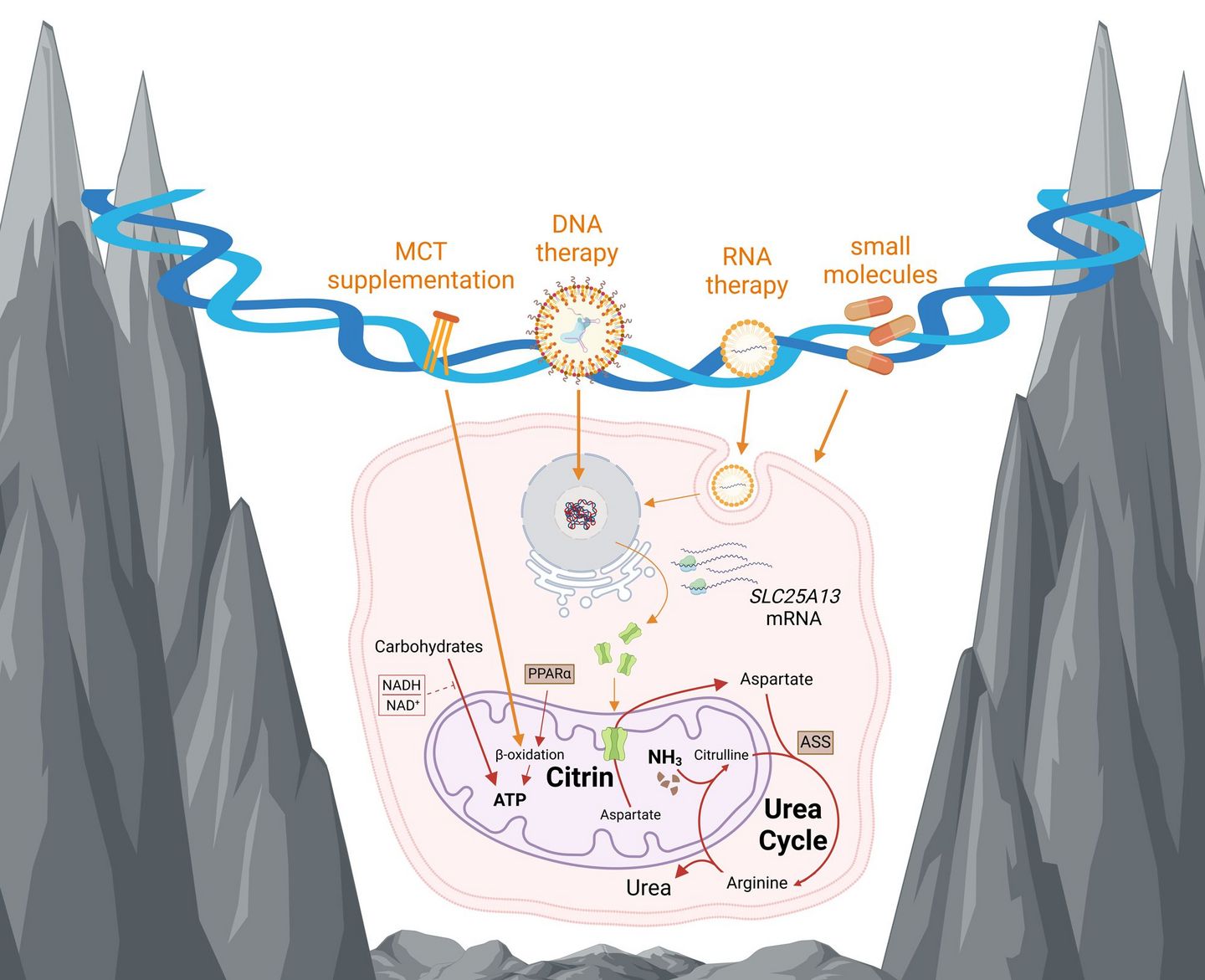The Urea Cycle Disorders Translational Center Universität Zürich – Citrin Foundation is a pioneering initiative established at the University Children's Hospital Zurich under the auspices of the UZH Foundation and with substantial support from the Citrin Foundation.

UCDs are a group of rare, heritable metabolic disorders that affect 1 in 35,000 births globally. They stem from genetic mutations of the enzymes and transporters involved in the urea cycle pathway, a process in our liver cells that eliminates ammonia. Accumulation of ammonia in the bloodstream is highly toxic and can cause permanent neurological damage or death in affected patients. Treatment usually starts very early in the life of the patients and can have relevant side effects. Patients with most UCDs need to adhere to a strict low-protein diet to avoid metabolic crises. The only potential long term treatment is liver transplantation, which is a very invasive intervention that is not available to all patients.
“We’ve made enormous scientific strides in recent years, but to make a difference for patients, we need to bring discovery and delivery closer together. This Center is structured to do exactly that—through rigorous science, thorough clinical understanding, global collaboration, and shared commitment.”
Professor Johannes Häberle, Center Director
Although research has made significant progress in the understanding of UCDs, many clinical challenges remain. An accurate diagnosis is often delayed, due to a lack of diagnostic markers and a lack of awareness. Additionally, the treatment options for diagnosed patients are very limited. Our mission is to bridge the "valley of death", which refers to the challenging transition from promising results in research to the successful clinical implementation of those results. We aim to achieve this transition and enhance the lives of patients by:
Using Citrin deficiency as a launchpad for translation, the Center will address the full spectrum of UCDs. These conditions share overlapping metabolic mechanisms and clinical profiles, making them ideal for a shared translational strategy focused on clinical relevance and cross-disease applicability.
The UCD Translational Center can, thanks to the generous support from the Citrin Foundation, address not only cutting-edge research but also strategic integration of discovery, development, and patient engagement into a coordinated translational ecosystem. Under the leadership of the clinician-scientist Professor Johannes Häberle, and supported by a multidisciplinary team of PhDs, researchers, clinical program manager, and clinical trial coordinator, the center represents a bold new model for translating research into real-world solutions for UCDs.
"When the right philanthropy is combined with the right partner and the right focus, rare diseases become not only researchable, but solvable, making a real difference in patients’ lives."
Barbara Yu, President Citrin Foundation